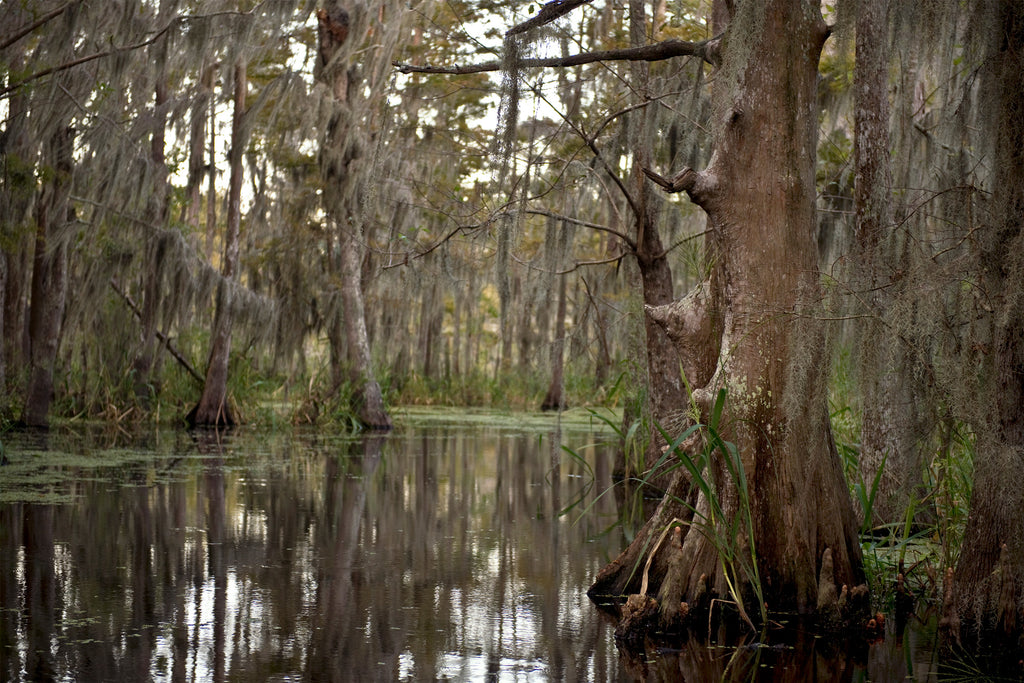Haydel's Blog
TIMBEEERRRRRR!!

I always laugh when someone asks me if I call differently when hunting up north vs. hunting in the south. The usual answer is that “I usually throw in a little accent up north”. In reality ducks do not change their voice just because they cross a state line so why would you change your calls? Changing your calling style in different situations however can be to your benefit. Let’s discuss calling in the timber.
The most common problem where calling in timber are your calls echoing. To compensate for this you can blow softer in your call or muffle the exhaust barrel of the call with your hand to decrease the volume. This will help some but not totally eliminate the echo. This is the reason a lot of hunters use a lot of feed chatter and single quacks when calling in the timber. The problem is that the feed call and single quacks are not demanding enough to make the birds turn. They simply respond if they want to. Demanding reactions from birds in the timber keeps you from loosing them to other hunters or even losing them altogether.

Timber hunting lends itself to seeing the birds when they are almost on top of you. Long hail calls are out of the question and most of the time will flare the birds. To demand ducks with your calls; keep your series short and choppy. This in itself is more exciting and the chop creates the sense of urgency. It is real important to stay in visible contact with the birds when calling to them, as it will tell you what to say and when. The shorter demanding calls will generally make them circle in closer range remaining in eye contact. Ninety-nine percent of my series of calls when calling in the timber is under seven notes. Most of the time it’s three to five note calls. When the ducks are “on line” it’s important to keep them there and I will continue to keep in vocal contact with them through single quacks. If they get off that line call to them immediately with a five note series.
The standard old tricks such as hunting timber only on bluebird days and splashing the water with your legs should not be ignored either. With the advent of spinning wing decoys, hunting the timber can bring on a whole new dimension. If you don’t have one try a trick a friend showed me one day. We had waded into an area across from where the ducks wanted to go but the water was too high to wade across the creek. After several attempts to bring the ducks in they just kept landing about 120yards in the next hole. As I was calling to a pair I looked over at my buddy and he was waving his hat turned inside out to the ducks. I could have killed him but then realized what he was doing so I decided to let it play out. The white inside the cap I guess looked like the underside of a mallards’ wings and the ducks came to the 20-yard line. Keep in mind when hunting the timber the other rules of duck hunting such as wearing a face mask or paint. At least hide in the shadows and wear a good timber pattern camo. The new Realtrees’ Timber HD is perfect for this. If you do use a spinner in the timber make sure it’s visible to the birds and do not completely fill “the hole” up with decoys. Leave room for them to get in.
Some days it takes a little experimenting to figure out what the birds want. Last year while field-testing our new TC-02 “Timber Cutter” the birds were acting “squirrelly”. I found by staying on the call hard the birds would commit but as soon as I’d lay off the call they would drift on me. This is where you want a softer call. I had tried other calls that day but the birds seemed to prefer the timber call. Every day is different and that’s part of the fun … experimenting. If the wife gives you a hard time just tell her your doing some scientific research under a new field test program for Haydel’s!









